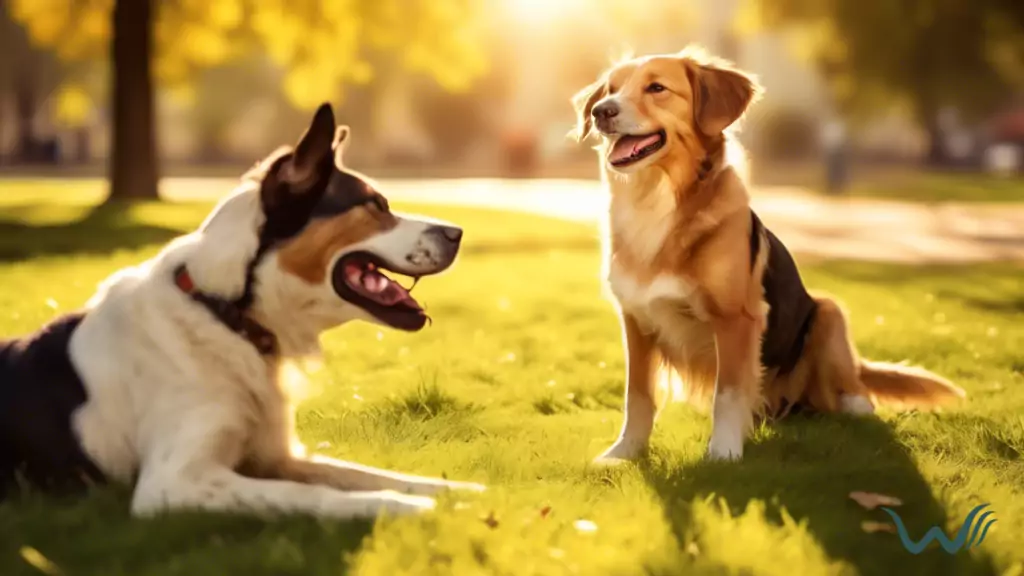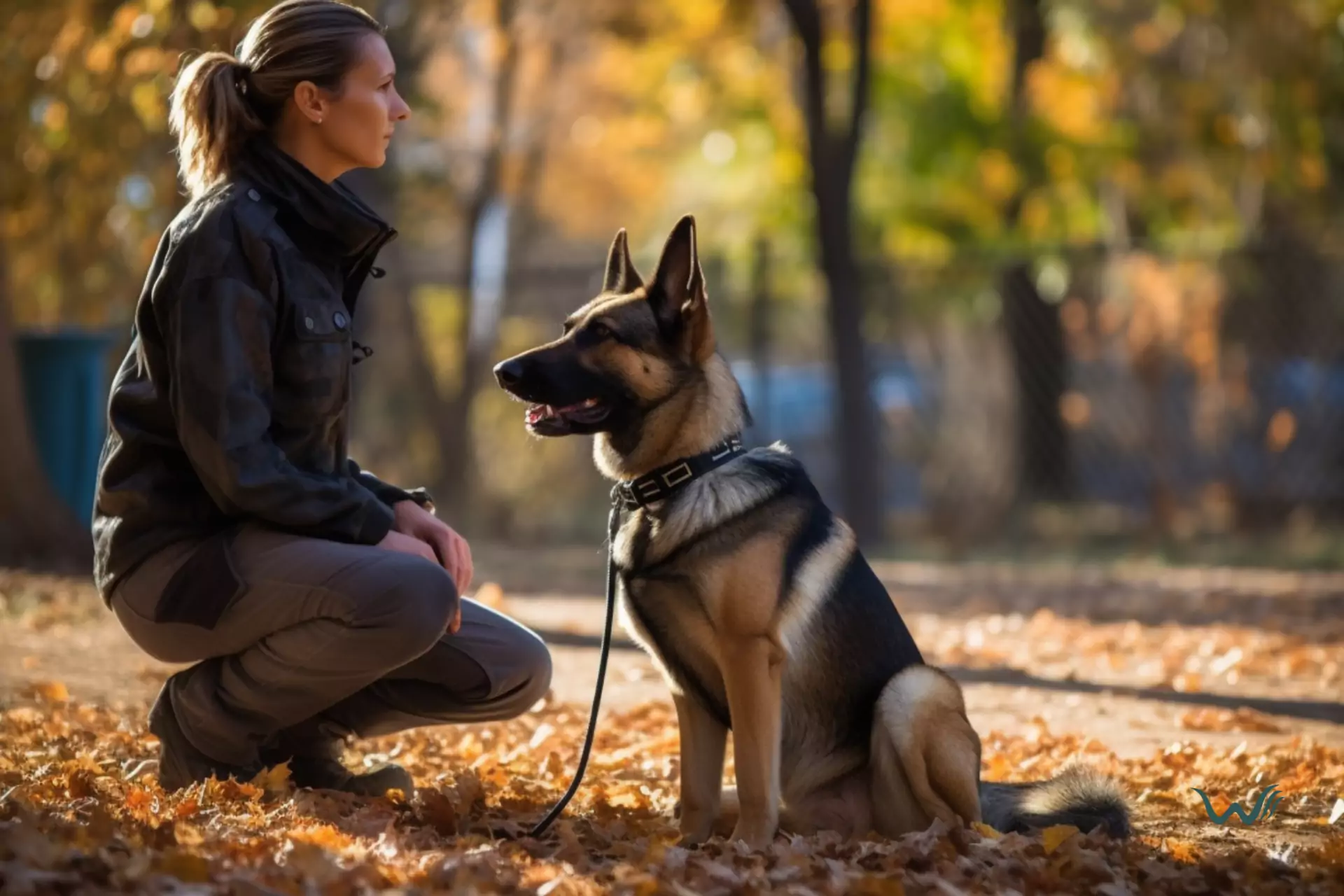

The Importance Of Socializing Your Dog
by Tayyaba Amir
Last updated: February 23, 2024
Verified and Approved by:
Angela Morris,
MSW, LCSW
Fact Checked

Did you know that approximately 4.5 million dog bites occur in the United States each year? This alarming statistic highlights the importance of socializing with your furry friend. Dogs are social animals by nature, and proper socialization plays a significant role in their development and behavior. By socializing your dog, you not only ensure their safety and the safety of others, but you also provide them with a fulfilling and happy life.
Socialization is the process of exposing your dog to various people, animals, environments, and experiences from an early age. It helps them become well-adjusted and confident in different situations, reducing the risk of aggressive behavior.
Whether you have a puppy or an adult dog, it is never too late to start socializing. In this article, we will explore the benefits of socializing your dog, when to start, how to do it properly, common challenges you may encounter, and how to maintain socialization throughout your dog’s life.
Key Takeaways
- Socialization is essential for dogs at all stages of life, not just when they are puppies.
- Regular exposure to new experiences can help prevent fear and anxiety in unfamiliar situations.
- Socialization is important for preventing behavioral issues and promoting the mental and emotional well-being of dogs.
- Socialization teaches dogs how to behave appropriately in different situations and sets them up for success.
Benefits of Socializing Your Dog
If you want your furry friend to be happy and well-adjusted, you should start socializing them early on. Did you know that a study found that properly socialized dogs are 70% less likely to develop behavioral issues later in life? Socializing your dog is not just about allowing them to play with other dogs, it’s about exposing them to different people, environments, and experiences. By doing so, you are helping them build confidence and teaching them how to navigate the world around them.
When you socialize with your dog, you are helping them develop important social skills and learn how to interact with others. Dogs are social animals by nature, and by exposing them to different situations, you are allowing them to learn how to communicate and behave appropriately. This can prevent them from developing aggression or fear towards other dogs or people.
Furthermore, socializing your dog can also prevent them from developing anxiety or other behavioral issues. Dogs that are not properly socialized may become anxious or fearful in new or unfamiliar situations, which can lead to destructive behavior or even aggression. By exposing them to different people, animals, and environments, you are helping them become more comfortable and confident, reducing the likelihood of these issues arising.
Socializing your dog is important for their overall well-being and happiness. By starting early and exposing them to a variety of people, animals, and experiences, you are helping them develop important social skills and preventing behavioral issues from arising later in life.
When to Start Socializing Your Dog
Once your new furry friend comes home with you, it’s significant to begin their socialization journey early on. Socializing your dog at a young age is important for their overall well-being and development.
Here are three key reasons why you should start socializing your dog as soon as possible:
- Builds Confidence: Socializing your dog from a young age helps them build confidence and become comfortable in various situations. By exposing them to different people, animals, and environments, you are teaching them how to navigate the world with ease. This early socialization lays a solid foundation for their future interactions and prevents fear or aggression towards unfamiliar experiences.
- Enhances Communication Skills: Dogs are social animals and rely on effective communication to interact with their surroundings. When you start socializing your dog early, they learn how to communicate appropriately with other dogs and people. This includes understanding body language, recognizing cues, and responding appropriately. By developing these communication skills early on, your dog will be better equipped to handle different social situations throughout their life.
- Prevents Behavioral Issues: Proper socialization can help prevent behavioral issues such as aggression, fear, and anxiety in your dog. Early exposure to different people, animals, and environments helps them learn how to adapt and respond positively to new experiences. Socializing your dog also teaches them how to control their impulses, handle stress, and cope with various stimuli, which can significantly reduce the likelihood of developing behavioral problems in the future.
How to Socialize Your Dog Properly
To properly socialize your furry companion, ensure you expose them to various environments, people, and animals early on. This will help them develop positive associations and behaviors with different stimuli. Take your dog for regular walks in different neighborhoods, parks, and even busy city streets. This will expose them to different sights, sounds, and smells, helping them become more confident and adaptable.
Encourage your dog to interact with different people, including friends, family members, and strangers, to help them become comfortable around new faces. Additionally, arrange playdates with other friendly and well-behaved dogs to help your furry friend learn appropriate social skills and manners.
In addition to exposing your dog to different environments and individuals, it’s important to provide them with positive experiences during these interactions. Use treats, praise, and rewards to reinforce good behavior and create positive associations.
For example, when your dog meets a new person or another animal and behaves calmly and politely, reward them with a treat or a lot of praise. This will teach them that meeting new people and animals is a positive and rewarding experience.
It’s also important to monitor your dog’s body language during socialization sessions. If your dog shows signs of fear or discomfort, such as cowering, trembling, or growling, remove them from the situation and consult a professional trainer or behaviorist for guidance.
Common Challenges in Dog Socialization
Overcome the common challenges of dog socialization and witness the transformation in your furry friend’s behavior. Socializing your dog is important for their overall well-being and can greatly improve their behavior and temperament. However, there are several challenges that dog owners often face when trying to socialize their pets. By understanding and addressing these challenges, you can ensure a successful socialization process for your dog.
One common challenge in dog socialization is fear or anxiety. Many dogs may feel nervous or scared in new situations or around unfamiliar people or animals. This can make it difficult for them to interact and socialize effectively. To overcome this challenge, it is important to start slow and gradually expose your dog to new environments, people, and animals. Use positive reinforcement techniques, such as treats and praise, to reward your dog for calm and confident behavior. Additionally, seek professional help if your dog’s fear or anxiety becomes excessive or unmanageable.
Another challenge in dog socialization is aggression. Some dogs may display aggressive behavior towards other dogs or people, which can hinder their ability to socialize. It is essential to address this aggression with the help of a professional trainer or behaviorist. They can help you identify the root cause of the aggression and develop a behavior modification plan to address it. In the meantime, it is important to keep your dog on a leash and maintain control during socialization encounters to ensure the safety of everyone involved.
Here is a table to help you better understand and address the common challenges in dog socialization:
| Challenge | Solution |
|---|---|
| Fear or Anxiety | Start slow, use positive reinforcement, seek professional help if necessary |
| Aggression | Consult a professional trainer or behaviorist, keep your dog on a leash during socialization encounters |
Maintaining Socialization Throughout Your Dog’s Life
Maintaining socialization throughout your dog’s life is important for their overall well-being and behavior. Just like humans, dogs are social animals and they thrive on social interactions. By continuing to expose your dog to new people, animals, and environments, you can help them develop confidence and good manners.
Socialization should not be limited to just the puppy stage. It is an ongoing process that should continue throughout your dog’s life. By regularly introducing your dog to new experiences, you can prevent them from becoming fearful or anxious in unfamiliar situations. This can be as simple as taking them on walks in different neighborhoods, visiting new parks, or inviting guests over to your home.
By exposing your dog to a variety of sights, sounds, and smells, you are helping them become well-rounded and adaptable. In addition to preventing behavioral issues, maintaining socialization can also enhance your dog’s mental and emotional well-being. Dogs are social creatures and they thrive on companionship and interaction. Regular socialization can help prevent boredom and loneliness, which can lead to destructive behaviors. It also provides mental stimulation and can help keep your dog’s mind sharp.
Socialization is not just about exposing your dog to new experiences, but also about teaching them how to behave appropriately in different situations. By continuing to socialize your dog throughout their life, you are setting them up for success and ensuring that they are happy and well-adjusted.
Frequently Asked Questions
What are the potential consequences of not socializing your dog?
Not socializing your dog can lead to behavioral issues like aggression, fearfulness, and anxiety. Without proper socialization, they may struggle to adapt to new environments and have difficulty interacting with other dogs and people.
Can older dogs still benefit from socialization?
Yes, older dogs can definitely benefit from socialization! It’s never too late to help your furry friend build confidence and develop positive behaviors. By introducing them to new experiences, people, and other dogs, you can enrich their lives and improve their overall well-being.
Are there specific breeds that require more socialization than others?
Some breeds, like the American Pit Bull Terrier, require more socialization due to their strong instincts and potential for aggression. Proper socialization can help these dogs become well-rounded and friendly companions.
How long does the socialization process typically take?
The socialization process for your dog typically takes several months, but it’s an ongoing journey. It’s important to expose them to various environments, people, and other animals to ensure they grow into well-rounded and confident companions.
Can you socialize your dog too much?
Yes, you can socialize your dog too much. While socialization is important, overwhelming your pup with constant interactions can lead to anxiety and stress. It’s important to find a balance and give them time to relax and recharge.
Certify Your Emotional Support Animal Today

Why You Can Rely on Us?
At Wellness Wag, we believe your pet deserves care rooted in both science and compassion. Each article is carefully researched, written in clear language for pet owners, and then reviewed by qualified professionals to ensure the information is evidence-based, current, and practical for real-life care. Our goal is to help you feel confident in making informed decisions about your pet’s health and well-being.
Reviewed by
Angela Morris, MSW, LCSW
Angela is a licensed clinical social worker with 20 years of experience in patient advocacy and community mental health. She has assisted numerous clients with ESA evaluations and brings a deep understanding of disability accommodations, ensuring that all information is accurate, supportive, and practical.

Written by :
Tayyaba Amir
Last Updated :
February 23, 2024










